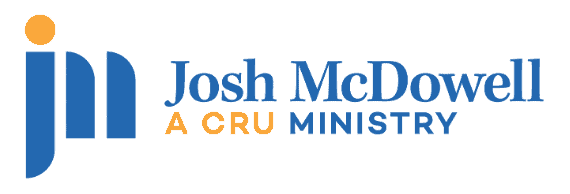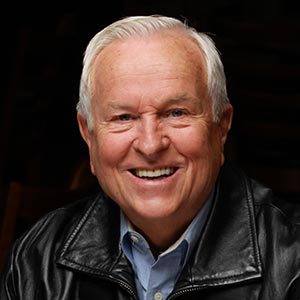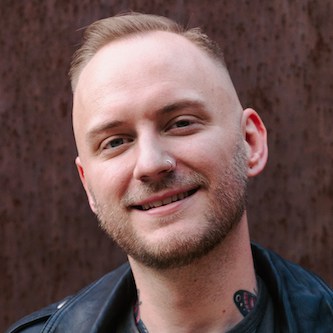Interview with Ron DeHaas, Founder and CEO, Covenant Eyes
In 1992, Ron DeHaas lost his wife and children in a tragic car accident, leaving him with a new understanding of the importance of families—an understanding he carried with him after he remarried. In March 2000, seeing just how easy it was to access inappropriate content online and wanting to protect his family, Ron founded Covenant Eyes, Inc. and invented Internet accountability. Through Covenant Eyes’ educational resources and Internet accountability/filtering software, he has directed over 1.5 million man-hours of battling pornography and sex trafficking. 100,000,000 Covenant Eyes Accountability Reports have generated 16 years of conversation-based accountability, making Covenant Eyes the most significant corporate force in cultural recognition of the public health crisis of pornography and sex trafficking.
The following interview with Ron DeHaas was conducted by Aly Hawkins, Managing Editor of Barna Group, publishers of the 2016 statistical review of pornography, The Porn Phenomenon.*
Barna: How have you seen the cultural landscape around pornography change since you first started Covenant Eyes in 2000?
DeHaas: The primary change in the cultural landscape around pornography is that it has become much more openly accepted as normal. The data from The Porn Phenomenon prove this. Look at the differences between generations: Tweet
- 22% of young adults aged 18 to24 consider porn to be good for society. 8% of that age group actually think it is “very good for society”—nobody over age 50 thought so.
- When asked to prioritize what people consider to be immoral, adults put “not recycling” pretty near the bottom of their list. Teens and young adults, however, consider “not recycling” to be more immoral than viewing pornography!
- The 18-24 year old group is more likely than any other age group actively to seek out porn (57% at least monthly). Meanwhile, over 70% of those over 50 say they “never” actively seek out porn.
- Another thing that has changed is the increasing acceptance – even expectance – of violence in pornography. Only about 40% of respondents under age 50 who use pornography thought that sexual images are “always wrong” if the images are of someone being depicted in a demeaning way.Common examples of demeaning images are women wearing dog collars and leashes being led by their masters and even eating and drinking from dog dishes. Other images show women with foul and obscene labels written on their bodies, or in some cases tattooed on their bodies. And it really is much worse, but not fit for this writing. How can 60% of any civilized society think that’s OK?
Barna: Do customers usually come to you in order to prevent pornography from becoming a problem or in order to curb an existing problem?
Both, and it’s deeper than that. The great majority of Covenant Eyes users are families – families that have the complexity of needs that matches the complexity of their families.
Many of our accountable families have parents who do not use porn, and don’t want their kids to use it. Many have no children, but one or both spouses DO use porn, and are struggling to stop. Many of those struggling have kids, and are trying to stop themselves, but especially want to protect their kids.
The one thing they have in common is that they are “accountable families.” Barna did a separate study on long-time (more than 5 years) Covenant Eyes users, comparing them to the data in The Porn Phenomenon.
Throughout The Porn Phenomenon, it is apparent that many or most of the older generations in the public at large have not been successful in passing on their values to the next generation. Tweet
However, “accountable families” (those from the Covenant Eyes cohort) who take the spiritual formation of their families seriously are successful in passing on their values to the next generation. Guess what – good parenting works!
Barna: At Covenant Eyes do you hope to not only affect behavior (rate of porn usage) but also belief (ideas and views toward morality of porn)? If so, how do you do this?
At Covenant Eyes, we believe that obedience from the heart to a set of rules leads to behavioral change, and in turn influences attitudinal change.
If the set of rules is that porn is OK, this will lead to wanting more and more degrading porn. Then follows acting out. Then follows damage to deeper emotional relationships, including marriage. It is a vicious circle.
There is a Biblical principle, from Romans 6:16 (NASB). “Do you not know that… you are slaves of the one whom you obey, either of sin resulting in death, or of obedience resulting in righteousness?” The rest of chapter 6 explains that obedience to the laws of God, from the heart, leads to righteousness; righteousness leads to sanctification; and sanctification, eternal life. It starts with obedience from the heart.
Defining the practice of obedience for your family is the best path toward molding proper ideas and views toward pornography. And accountability is the only way, the only tool, to do that training effectively.Tweet
But at Covenant Eyes, we go one further step beyond changing the ideas and views of individuals toward the morality of porn. We hope that those proper ideas and views will become a movement working toward a change in culture itself. It is a daunting task, but in one generation smoking in public has disappeared, so it can be done. And, Lord willing, we will work toward that goal.
Barna: Why did you start Covenant Eyes? What made you feel like a content blocking software would NOT work as a solution to pornography viewing?
Internet filters don’t work for most people over the age of 13. They are easy to circumvent, and actually provide a temptation for people to get around them. Then, when they successfully circumvent the filter, nobody knows, and the user may be trapped by the predatory porn culture.
When I started Covenant Eyes 16 years ago, I had two teen-aged sons, and instead of legalistically blocking them, I wanted something that would start a conversation, an accountability record. A filter was fine for my 7-year old daughter, but I wanted to train my sons in the disciplined use of the Internet. So I started Covenant Eyes Internet Accountability. We have a filter for those who need it, but accountability is the best.
The data from The Porn Phenomenon bears this out.
As shown in this study, 29% of general population adults “seek out” pornography at least monthly. However, for those who use a filter to block pornography, 39% seek it out at least monthly. More alarming, 54% of the general population say they “never” seek out porn, but 0% of filter-users say they “never” seek out porn. All filter users say they seek out porn!
And nobody knows… there is zero accountability, so the filters give zero motivation to “never” look at porn.
There is an unknown that may explain part of the difference, but not all of it. People define “porn” in different ways, so the filter-users likely have a stricter definition of porn than the general population. However, for 0% of the filter users to say they never seek out porn, there must be something deeper.
The Barna study also asked the same question of those who are trying to stop using porn. The results were much the same, as shown in the study. Filtering once again had zero percent say they “never” seek out porn.
In both cases, “accountable families” who have used Covenant Eyes for more than 5 years seek out pornography less often than either of the other groups, even though the accountable families have a stricter view of what porn is.
That’s why I started Covenant Eyes Internet Accountability.
* * * *
*All data in this article are from The Porn Phenomenon study by the Barna Group, 2016. Attendees of the Summit received a copy, and you can order it here.
* * * *
Ron DeHaas is the founder and CEO of Covenant Eyes, which offers Internet Accountability and Filtering software. He spoke at the Set Free Summit about the power of personal accountability.
![]()
Original blog post can be found at Covenant Eyes, a Josh McDowell Ministry partner. Learn more at SetFreeSummit.org.













